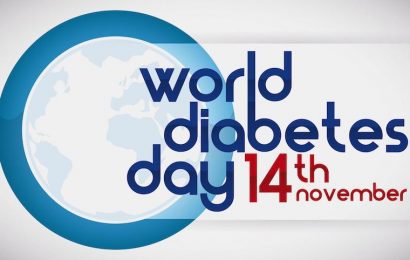For years, it has been probably the most memorable number for people with diabetes: Seven percent or lower, according to the American Diabetes Association, should be the target HbA1c level (a measure of long-term blood glucose control) for most people. In its Standards of Medical Care in Diabetes — 2010, the Association notes that reaching an even lower HbA1c level has been associated with further benefits, namely a lower risk of small-blood-vessel diabetic complications such as neuropathy (nerve damage), nephropathy (kidney disease), and retinopathy (eye disease). But it also warns that the risk of hypoglycemia may outweigh the benefits of reaching an HbA1c level below 7%.
Now, the authors of a study published in the journal The Lancet suggest that even 7% may be too low as a general HbA1c goal for people with Type 2 diabetes. To reach this conclusion, the researchers examined a database of nearly 48,000 people with Type 2 diabetes, ages 50 and over, who took either multiple oral medicines or insulin (or both) for their diabetes. Based on these participants’ average HbA1c levels, the researchers created 10 equal-size groups for analysis. When they examined the rate of death in these groups after controlling for age, sex, smoking status, cholesterol levels, cardiovascular risk, and general illness, they found that a lower HbA1c level was not consistently associated with a lower risk of death. In fact, the group with the lowest HbA1c level — an average of 6.4% — had a risk of death 1.52 times as high as the lowest-death-risk group, whose average HbA1c level was 7.5%. The group with the highest HbA1c level — an average of 10.5% — did also have the highest risk of death, 1.79 times that of the lowest-risk group.
According to a summary of the study on the Web site Aetna InteliHealth, these findings add to concerns about lowering HbA1c too much that were raised by the 2008 ACCORD study. Researchers ended ACCORD’s intensive-blood-glucose-control study arm 17 months early when they found that participants were dying at a rate 22% higher than in the standard-blood-glucose-control group. The researchers offered several possible reasons for the higher rate of death in the intensive-control group, including rapid lowering of blood glucose levels, a heavier weight and greater weight gain than in the standard-control group, side effects of the drugs used to lower blood glucose levels, and a greater likelihood of hypoglycemia in this group.
An important difference between ACCORD and the Lancet study, however, is that the new study did not randomly assign participants to a treatment group as ACCORD did; it just looked at what HbA1c levels they had achieved, without knowing what they were trying to achieve. This means that external factors could have affected the results — for example, people who were already prone to hypoglycemia (either naturally or because of specific diabetes treatments) could have had lower HbA1c levels because of their hypoglycemia. In this case, the higher risk of death associated with lower HbA1c might be the result of a hypoglycemia tendency that most people don’t have, so broadly recommending higher HbA1c levels would not make sense. Even in the case of ACCORD, many people argued that the drug treatments used in the study — rather than a lower HbA1c in general — could have caused the higher risk of death in the intensive-control group. And, in fact, a study released soon after ACCORD that used different drug treatments but followed a similar design (ADVANCE) found “no indication of harm” from the lower HbA1c level achieved in its intensive-control group.
What do you think — did the Lancet study authors jump the gun by writing that HbA1c guidelines should possibly be reevaluated? Should more effort go toward investigating the safety of treatments used in studies, such as ACCORD, that find a higher risk of death associated with intensive blood glucose control? Should studies put a greater emphasis on how a lower HbA1c level is reached, rather than just on that number? Have you or your doctor made any changes to your diabetes treatment as a result of any of these studies? Leave a comment below!




